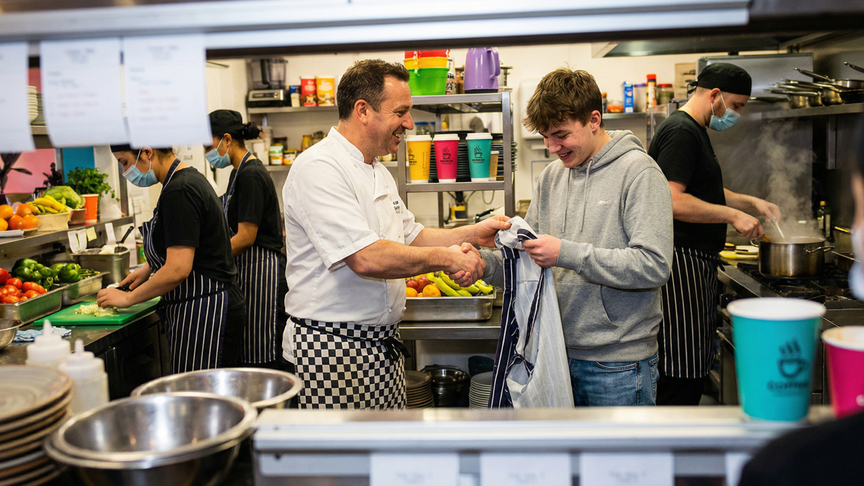For people over 45, the ideal career path is calling the shots themselves, according to new data.
Although nearly one in four workers (24%) consider self-employment or running a business their dream jobs, data from Employment Hero’s inaugural Annual Jobs Report shows that figure is strongest among employees aged 45 and up, with 33% expressing this desire.
The report also shows that 37% of workers aged 55+ want to start their own business, while 83% of solo entrepreneurs are glad they established one, signalling that entrepreneurial ambition is thriving despite economic uncertainties.
Reinvention and career change
The drive to start fresh extends beyond just business ownership. A third of UK workers (33%) are also seeking a career change, with one in five of those aged 55+ looking to pursue new paths. It suggests a longing among older workers to follow passions or find work that better suits their lifestyle and wellbeing. Given that the average age of UK entrepreneurs is 46, it makes perfect sense.
Take Laura Harnett, Founder and CEO of Seep. After 20 years in corporate roles, including as Director at Selfridges, a breast cancer diagnosis while her children were young became her “silver lining.”
She began angel investing and advisory work, which demystified startups, and eventually founded Seep, an eco-friendly household brand, during lockdown. She credits her leap to a fear of regret if someone else executed her idea first.
“People often picture entrepreneurship as a young person’s game, but my story shows it’s never too late to start,” Laura says.
“After two decades in corporate life and a health scare, I realised I wanted to build something meaningful on my own terms. Founding Seep has brought me more fulfilment than any boardroom ever could.”
Reinvention and purpose
Many are drawn to self-employment to align their work with personal purpose, lifestyle, or wellbeing. Suzanne Noble, Co-Founder of Startup School for Seniors, explains that older founders often approach entrepreneurship deliberately.
“The data reflects exactly what I see every day: older workers are increasingly turning to self-employment, whether out of necessity or choice. For some, age discrimination and long job searches push them to create their own opportunities. For others, it’s about chasing fulfilment, purpose and flexibility later in life.”
Lifestyle isn’t the only driving force behind this trend, however.
“What’s often overlooked is that older founders are calculated, deliberate and more likely to succeed in the long term,” Suzanne adds.
“They’ve got decades of experience to draw from, and entrepreneurship offers a powerful way to put those skills into practice.”
Lessons from midlife founders
Community, networks, and gradual learning are essential for older entrepreneurs. Laura advises building a supportive network, using experienced freelancers instead of rushing to hire, and starting with side projects when younger to reduce financial risk.
Suzanne, meanwhile, points to the importance of overcoming tech insecurities, managing overwhelm, and leveraging life experience to make calculated decisions.
Looking ahead
The rise of midlife entrepreneurship demonstrates that age can be an asset rather than a barrier. As Britain faces economic headwinds, the data signals some positivity in other respects. Competition is fierce, but what the UK does have is a workforce ready to innovate, reinvent, and build. For SMEs, midlife entrepreneurs are a source of experience, creativity, and resilience shaping the UK’s entrepreneurial future.























